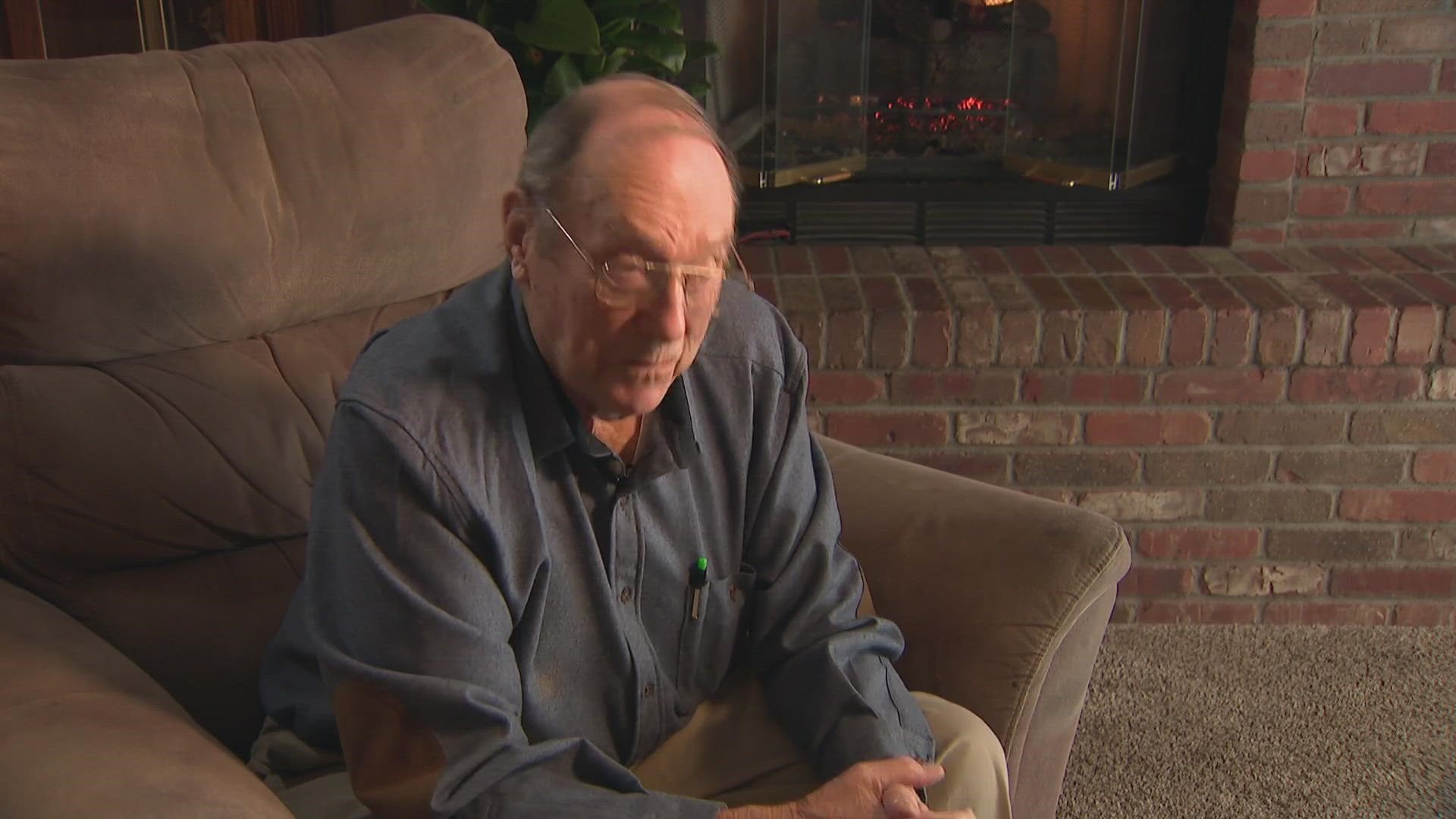DENVER — A former Denver Police officer's grief has inspired change in how the department supports the mental health of officers after they use deadly force.
For Officer Joe Gross, the trauma of killing a man in the line of duty triggered a decade-long battle with depression and alcoholism.
Gross joined the Denver Police Department on May 1, 1957 after relocating from Nebraska. Things went well for a while, and Gross said he felt like he was born to be a cop.
But four years into the job, Gross responded to a call on Larimer Street that changed everything.
"It was a difficult part of my life...still today," Gross said.
It was March 19, 1961. An armed robber was holding a police officer at gunpoint downtown. Gross said he got out of his patrol car, saw what was happening, and did what he had to do: He fired his weapon, and the man died.
"I remember looking down at the guy, and I could just feel the incredibly intense depression building up in me and there wasn't a damn thing I could do about it," he said, "so I just said a couple of prayers for him and a few more for me."
A deeply religious man, Gross said he was devastated that he had killed a man.
"That's a horrible thing, and then to look down at him and know that it was me that caused that. Oh, boy, that's bad stuff," he said.
Despite his anguish, Gross said he was back on the job the next day.
"Got no special treatment, which was all right with me, I didn't want any special treatment," he said.
It may have been all right with Gross, but Gross was not all right. He was depressed, and he began drinking heavily to mask his pain.
About 10 years later, Gross attended his first Alcoholics Anonymous meeting. After he got sober in 1972, he took it upon himself to counsel dozens of other police officers who had been involved in shootings.
Gross said it gives him a good feeling to help officers who are experiencing the same pain he did.
"Some officers really struggle with the taking of a human life," said Sgt. Bobby Waidler, who runs the resiliency, wellness and peer support programs for Denver Police (DPD).
In addition to teaching yoga classes at the police academy, Waidler runs a wide range of programs designed to promote the mental and emotional health of DPD's officers.
Waidler said lessons learned from the experiences of cops like Joe Gross have informed the department's current approach to helping officers who are involved in shootings.
"It's so hard to determine if you get into a shooting how it's going to impact you, how it's going to land with you, how it's going to affect you," Waidler said.
These days when an officer is involved in a shooting, Waidler said, they're off the street for a minimum of eight weeks. During that time, they're required to meet with a psychologist and go through what Waidler describes as a comprehensive reintegration program.
"We'll start with the physical, the mental, the emotional, the occupational, the intellectual, sometimes the spiritual," he said.
"We'll work out with them in the gym, we'll put them through a yoga class if they want, we'll do anything that we can do to help their healing and their processing of this major event in their life," said Waidler. "It's a neurological reset. A forced, critical, tactical pause."
According to Waidler, that tactical pause is necessary for everyone: the officers themselves and the people they're sworn to protect.
"Our officers take a pledge, they take an oath, to serve," said Waidler. "It's our obligation from our department to serve our officers and to support them."
More stories by 9NEWS reporter Matt Jablow:
SUGGESTED VIDEOS: Investigations & Crime

